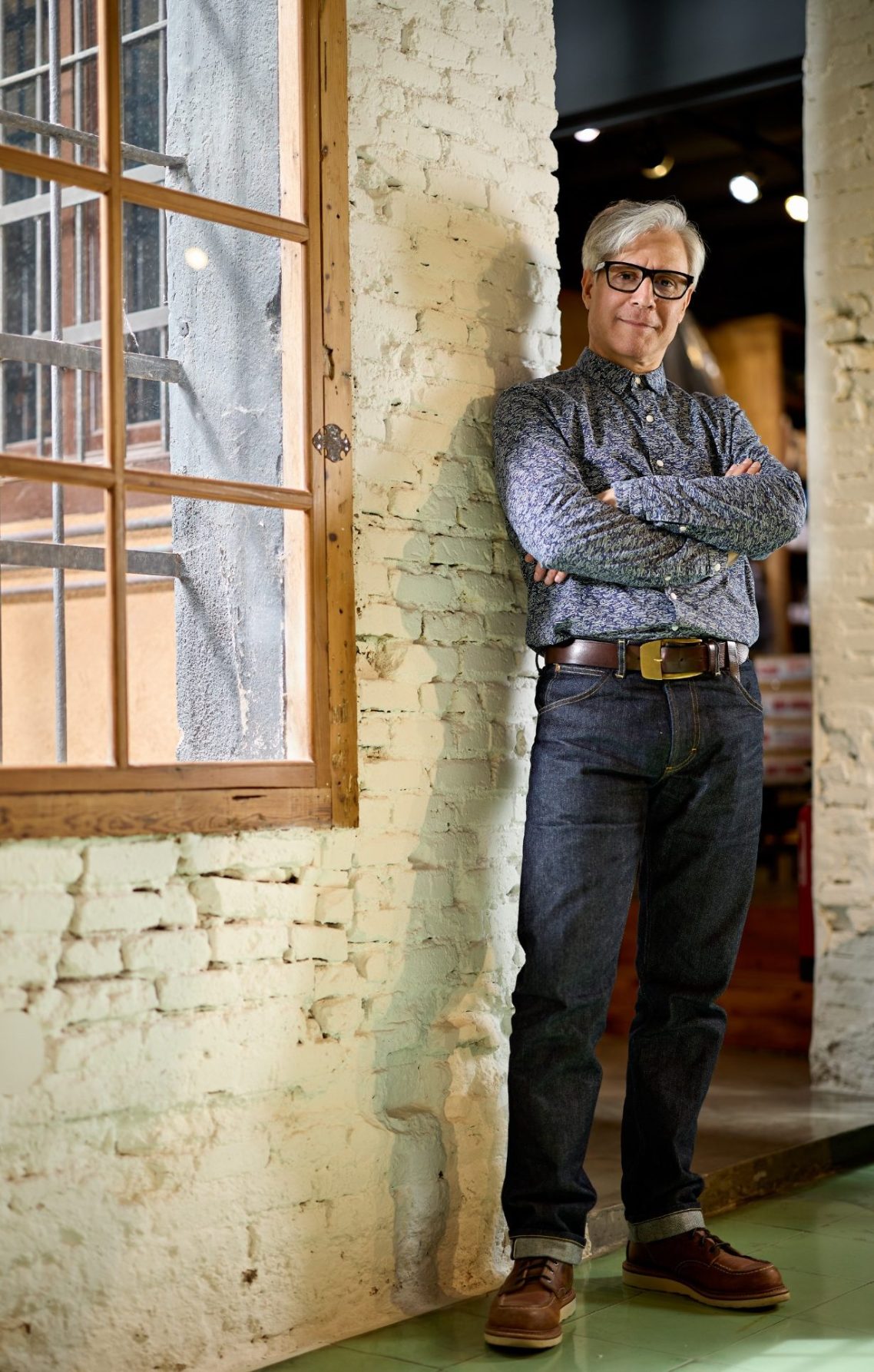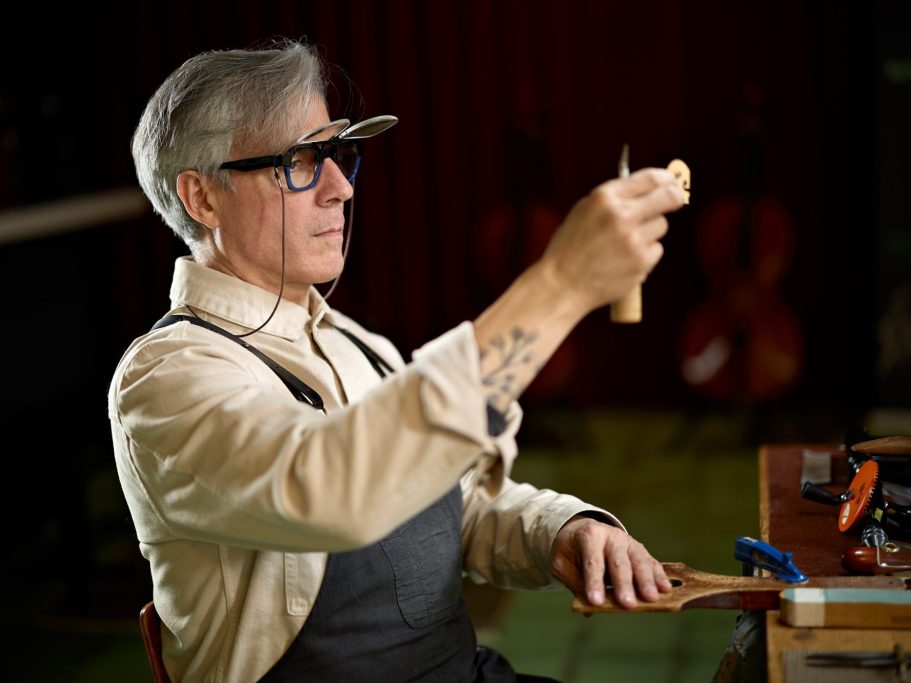Josep Saguer
Luthier - TektonPitu
After various adventures across the Mediterranean –much like a Homeric character– this handsome native of Figueres has found a harbor in Barcelona to manage a place filled with Greek references, where he combines the inspiration of the muses (Mousai) with the craft of a builder (Téktwv). Located near one of Barcelona's most beautiful squares, Sant Pere, it has been seven years since luthier Josep Saguer and pianist Isabel Fèlix opened this unique space. Notably, Sant Pere Més Alt street, which leads to the square, connects with Via Laietana, the Palau Music School, and the Palau de la Música Catalana, in a street where the traditional shops from the grandmothers' times (now franchises run by Pakistanis) coexist with antique dealers, graffitied shutters, souvenir shops, and restaurants enticing tourists with tapas and paellas.
The uniqueness of the space (which serves as a shop, workshop, study room, and small auditorium) captivates all five senses. Beyond the large glass window of this establishment, where music is crafted –hence the name: Musitekton– the eyes are dazzled by guitars, violins, violas, and colorful cases aligned against the gray backdrop of the left wall; by the metal structure supporting the stripped wooden beams; by the whitewashed bricks in the right corner; by the red curtain over the green mosaic floor in the back...
But it is the sense of smell that most profoundly connects with taste (until the palate is fully engaged) through the intense scent of wood: from the parquet, the instruments, and the large cabinetmaker's table (...) Indeed, in this space –consistent with both the concept and the manifest aestheticism of its creator– there is an almost sacred dignity in the air.
As with all biographies, that of Josep Saguer gains meaning when events are linked retrospectively: from his native Figueres (...), where he combined musical training with a thousand and one jobs that allowed for quick earnings ("I didn’t mind getting my hands dirty"), he spent time in Málaga to study at the School of Lutherie of José Ángel Chacón. Although his parents wanted him to pursue architecture because he was good at drawing, Saguer says he wasn’t interested in straight lines, which led him to further his training in France and Italy with various luthiers (Carlos Arcieri, Gabriele Negri, François Perego). (...) Once in Barcelona, he set up a workshop at home but soon "felt ready to open it to the public." (...)
Kindly, with a baritone voice, Saguer speaks of Musitekton as the "consummation of a project" rooted in a childhood curiosity: "Although he worked in banking, my father was a musician and had a small workshop in the attic, where I made my toys. I built model ships, airplanes, stages... And when I went to bed, it was always while listening to a small transistor, which one day broke down. So I went up to the attic, took it apart, and reassembled it, and it worked! The effect was incredible, magical! And that hooked me, much to my mother’s despair, who noticed that whatever appliance we had at home, I would take it apart (the toaster, the yogurt maker...) and it didn’t always work again."
Open space, open work. "When I saw the space, I suddenly saw myself in it: this is the place where I want to be." The work of selling instruments, dedicating oneself to repairs (...), setting up the instruments he sells (...), the repairs, and managing the shop. (...) A shop where he feels at home, perhaps because –despite being in the heart of Barcelona– the whitewashed walls, wood, beams... give the space a Mediterranean feel, almost like (albeit deeply aestheticized) a fisherman's house. (...)
Perhaps that's why he works facing the light from the inner courtyard, which –with the plants accumulated over the well and the wall– has an oasis like feel. If someone enters the shop while he is constructing an instrument, he has learned not to disconnect from what he calls the wood: "Doing several things at once works well for me, because I’m very restless." But if there are tasks that require solitude, like varnishing, he does it behind closed doors, "with the light coming in through the window from 2 to 4."
"I work without thinking, the work flows and emerges in a kind of healthy altered state of consciousness. I like to feel that the wood and I understand each other. And from the moment I notice that this relationship is clear (there is a sensation that I perceive physically, generating an intense emotion), a form of back-and-forth communication between the wood and me develops that doesn’t stop. It’s clear that there are measurements and proportions to consider, but really when I work, my head is connected to the wood, and everything else fades away."
Saguer speaks with the serenity of someone who has learned to leave worries behind and live in balance of body, mind, and spirit. And thus, his instruments (...), are imbued with the serenity of heart and –like the wood of a Greek hero’s ship– with the light of the Mare Nostrum.
Josep Barcons Palau, Revista Musical Catalana (April-May 2018)


CONSTRUCTION

RESTORATION
violin, viola and cello

REPAIR
CONTACT
Phone: +34 932 955 289 / 649 228 042
Email: pitusaguer@gmail.com
Address: C/ Sant Pere Més Alt, 68, bxs - 08003 Barcelona
Necesitamos su consentimiento para cargar las traducciones
Utilizamos un servicio de terceros para traducir el contenido del sitio web que puede recopilar datos sobre su actividad. Por favor revise los detalles en la política de privacidad y acepte el servicio para ver las traducciones.